Club wetlabs give veterinary students additional hands-on experience
February 06, 2025
Not all learning takes place in a classroom
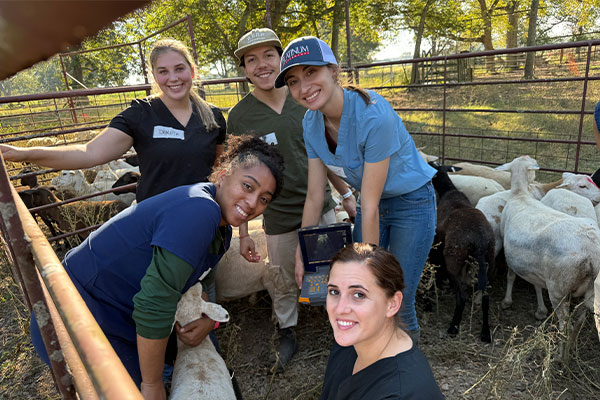
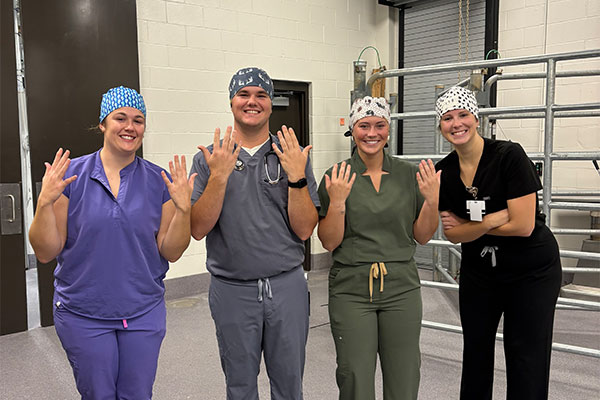
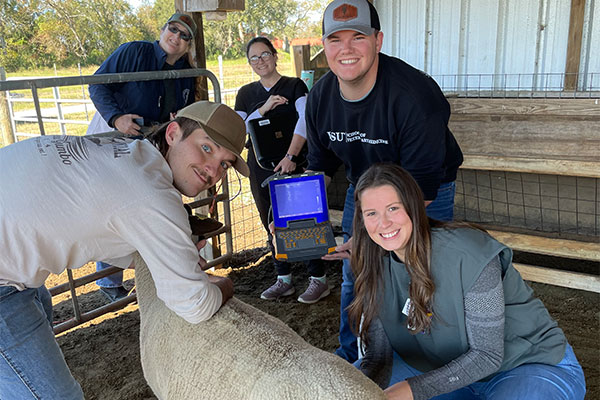
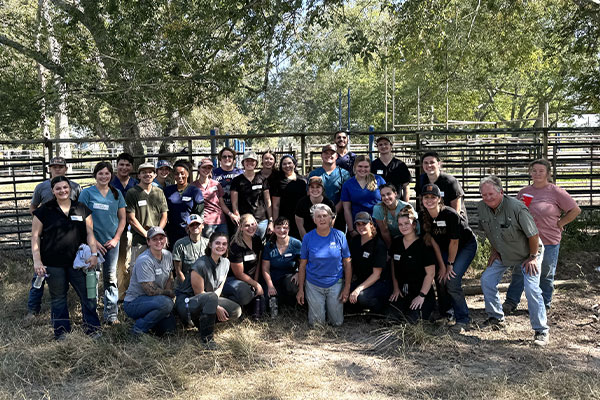
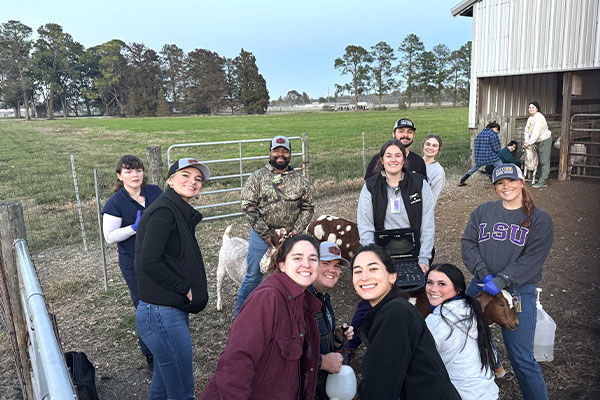
The LSU Vet Med Food Animal Club participated in several wet labs in the fall semester that gave students unique opportunities to understand small ruminant reproduction. Small ruminants are grazing mammals, such as sheep and goats.
Twenty students assisted in a laparoscopic artificial insemination wet lab where they inserted semen collected during the lab directly into the uterus of seven goats using laparoscopic techniques. This opportunity included a group of students across all DVM classes working together for a week to ensure success.
"Food Animal Club wet labs are always a very memorable full day of hands-on learning," said Megan Tassin, Class of 2026 and American Association of Small Ruminant Practitioners student representative. "We are able to truly 'get our hands dirty' and work together as a group to learn new skills. Food animal club continuously provides so many extra learning opportunities outside of the classroom. As a student with a focus in small animal medicine, I love being able to step out of my comfort zone and learn about a whole other area of vet medicine."
Added Ethan Neal, Class of 2026, and Food Animal Club president, "One of my favorite aspects of the Food Animal Medicine Club is the teamwork sense of community it builds. No matter the lab or situation, everyone stays until the job is done."
Later in the semester, students practiced ultrasound skills on the same goats to determine whether the procedure was successful (resulting in pregnancy). Another wet lab opportunity in October 2024 allowed 30 students to ultrasound approximately 250 ewes at a sheep farm in Jackson, Louisiana, to determine if they were pregnant. In December 2024, several students went back to the sheep farm and were able to process (tag, castrate, and vaccinate) the 230 lambs that were born.
Added Tassin, "Dr. Scully and all the Food Animal faculty continuously work to provide unique opportunities for us to get hands on and further our learning. I am so appreciative of her and the time that she gives to allow us to do things outside of the classroom that we will remember for years to come."
"I joined the Food Animal Medicine Club mainly because I like cows, but the club is so much more than that," said Neal. "I had never used an ultrasound on a sheep or goat before, but after these last few years, I can confidently ultrasound these species. The learning opportunities provided by Dr. Scully and Dr. Welborn do not occur in normal classwork, and their teaching and mentorship goes above and beyond."
An additional opportunity that was provided for club members in November was a wet lab on dehorning cattle. Thirty students went to the Ben Hur Cattle Unit and learned about safe cattle restraint, nerve blocking, and best practices when dehorning cattle. These are a few of the wet labs provided for DVM students who are members of the Food Animal Club under the mentorship of Dr. Clare Scully, associate professor of food animal health maintenance, with the assistance of student officers Ethan Neal and Megan Tassin.
"I joined Food Animal Club to try something new and step out of my comfort zone," said Tassin. "I have since then found a love for small ruminants and have gained experience working with them through the various wetlabs provided for us. Working as a club officer with our advisor, Dr. Clare Scully, I have also gained an inspiring and supportive mentor. I am so thankful for the opportunities Food Animal Club has brought me."
"Every lab turns into so much more than its original intention," said Neal. "Palpation at the dairy can quickly turn into a toxic plant lesson with Dr. Welborn when he sees certain weeds in the field. Pregnancy ultrasounds with Dr. Scully can turn into a lesson on lameness and nutrition. You just never know what you will learn that day, and I think that's the best part."
About LSU Vet Med: Bettering lives through education, public service, and discovery
The LSU School of Veterinary Medicine is one of only 33 veterinary schools in the U.S. and the only one in Louisiana. LSU Vet Med is dedicated to improving and protecting the lives of animals and people through superior education, transformational research, and compassionate care. We teach. We heal. We discover. We protect.